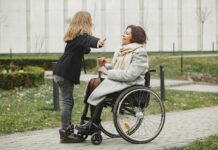Schools are the one educational institution that is deeply involved in the daily lives of nearly every young Canadian. They are in a rare position to teach students about all kinds of topics, ensuring high rates of basic literacy in a wide range of subjects. But while most people agree on the basics every citizen should learn, there is one topic that seems to always stir controversy: sex education.
Concerned parents worry that modernization of sex ed curriculum to include more information at younger ages may lead to earlier sexual activity for minors. Canada’s multicultural nature does not help ease the controversy over what should be taught in schools and when.
While there needs to be balance between what is key information for sexual health and wellness and what is culturally acceptable, it’s important to note the immense benefit that comprehensive sex ed programs can have. They can serve as the foundation for making educated and consensual decisions for life.
Going beyond an abstinence-only approach has also been proven to delay the average age of first sexual contact, and to increase the use of condoms and birth control when young people become sexually active. Sex ed can also give a safe space to lend visibility and acceptance on LGBTQ topics. It also protects against misinformation or unhealthy narratives that students might pick up elsewhere, including pornography and the internet.
But perhaps one of the most compelling arguments for an evidence-based approach to sex ed is that, done right, it can give people the tools to decrease the odds of experiencing sexual violence.
Even from primary school ages, just knowing the proper anatomical names for body parts can help give children the tools to communicate and protect against sexual abuse. But the message that sexual relationships can be healthy is also key.
This sex ed program reduces likelihood of experiencing sexual assault
Even into young adulthood and beyond, broader sex ed that puts consent and desire at its core is now the only approach proven to decrease sexual violence.
Charlene Senne, professor of psychology at the University of Windsor, developed the Enhanced Assess, Acknowledge, Act (EAAA) Sexual Assault Resistance Education Program over the past decade.
Notably, EAAA was evaluated in a clinical trial with university students. When compared to students who were given access to brochures, which is a common campus standard, students who participated in EAAA were 46 percent less likely to experience rape and 63 percent less likely to experience attempted rape or other forms of sexual assault over the next year.
The heart of the program is a discussion of consent, and how students can understand and advocate for their own boundaries. Instead of being prescriptive, EAAA provides a safe place to think about how to seek out healthy sexual relationships, and be confident enthusiastically saying yes to them. This helps participants recognize, avoid, and resist unwanted sex. The program also includes two hours of self-defence training.
What is perhaps most intriguing is that rape attempts drop even more than completed rapes. Senne hypothesizes that by understanding personal desires, boundaries, and values more clearly, EAAA participants can more easily spot sexual coercion when it is still relatively safe and easy to resist or leave.
Instead of messages of shame or blame, EAAA empowers participants to understand their options and apply them in any situation. While staying sensitive to what is age appropriate and introducing these topics gradually, it’s worthwhile to spread this message widely.








































